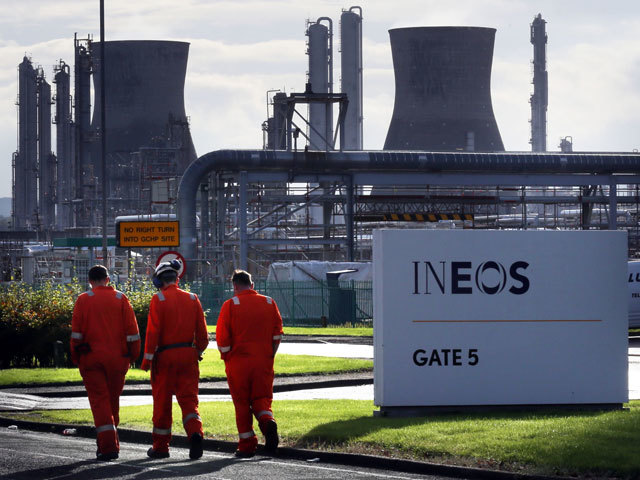
Petrochemical giant Ineos is seeking damages from the Scottish Government in a legal challenge it has brought against the ban on fracking.
Thye firm, which runs the Grangemouth refinery, is seeking to set aside the decision not to support the development of unconventional oil and gas (uog), which includes fracking, in Scotland in a judicial review and maintains the government acted unlawfully.
In the action brought by firms Ineos Upstream and Reach Coal Seam Gas damages are also sought for “just satisfaction” for an alleged violation of an article of the European Convention on Human Rights.
Following a decision to allow the entire case brought by the companies to go to a full hearing issued today (fri) a judge ordered them to amplify their compensation claim.
Lord Pentland had earlier said that for a matter of such importance to the parties and for the public interest it seemed “hardly satisfactory” that the claim was in an “undeveloped state”.
Anna Poole QC, for the firms, said it was proposed to offer a schedule which would give more detail of the claim.
But she told the Court of Session in Edinburgh that because it was such a large exercise it required a team of people to work on valuations, rather just one individual.
She said that in the announcements to the Scottish Parliament on the issue it was said it had been mindful of the effect on business.
She said: “One would hope the effect on the business of the petitioners is not a surprise to them.”
The firms claim that their business interests were adversely affected by decisions and actions of the Scottish government.
James Mure QC, for the Lord Advocate on behalf of the Scottish Ministers, said that a May court date for the hearing of the judicial review was “the opportunity for the parties to have a substantive hearing on the legal issues”.
He said: “I would wish to have more detail because the date in May has to have some context.”
As well as last year’s decision the firms had extended their legal challenge to a Scottish government moratorium for granting consents to UOG developments in 2015 and other decisions linked to it that year.
The Lord Advocate had argued that the challenge brought against the 2015 decisions was time barred because it was brought long after the expiry of the three month time limit for bringing judicial review proceedings.
The firms had argued that to give them an effective remedy it would be necessary to set aside those decision. It was said the case was important to them in light of their multimillion pound investments in Scotland.
Lord Pentland said the Lord Advocate accepted that the firms have sufficient interest in the whole subject matter of the application for judicial review and have a real prospect of success _ the legal test for allowing it to proceed _ over the challenge to last year’s decisions.
The judge said: “The only question raised before at the permission stage was whether the petitioners (the firms) have a real prospect of success insofar as the petition relates to challenging the 2015 decisions.”
Lord Pentland said he had decided to allow the whole of the case brought by the firms to proceed.
The judge said: “On a provisional view, there may be some possible merit in the proposition that the 2015 and 2017 decisions are closely inter-linked and that this is significant in the wider context of the issues that arise in the case.”
“Beyond saying that, it would not be appropriate for me to attempt any evaluation of the parties’ competing arguments at this preliminary stage.”
Recommended for you
